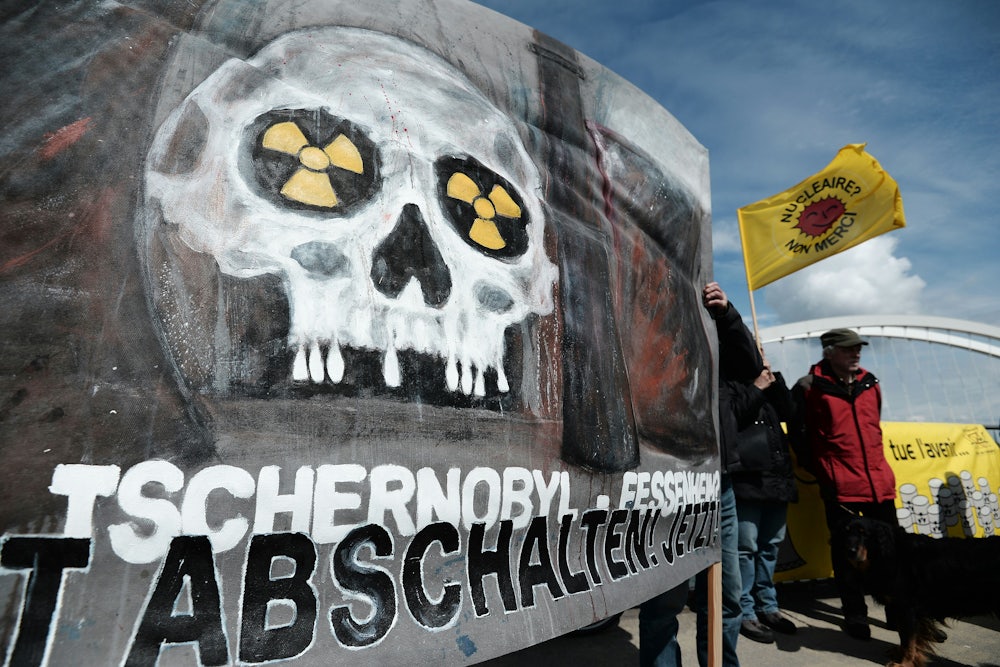Today marks 30 years since the Chernobyl nuclear disaster, in which ten tons of enriched uranium were released from a Ukrainian plant. In addition to devastating the surrounding area, the disaster upturned the entire world’s conception of nuclear power. Today it remains a hotly debated energy source, even though it’s one of the few that release no greenhouse gases.
In the United States, where nuclear produces about 20 percent of the country’s electricity, environmentalists and politicians are still negotiating the delicate balance between clean energy and human safety. Ahead of the New York presidential primary, Bernie Sanders—the only presidential candidate who opposes nuclear energy—said the state’s Indian Point nuclear plant, which provides about a quarter of the electricity to New York City and wealthy Westchester County, should be closed. For decades it has been notorious for leaks and safety hiccups. Hillary Clinton called for a “careful, thoughtful” review instead of a complete shutdown.
The daylight between Clinton and Sanders on nuclear echoes echoes a split in the environmental community. NASA climate scientist-cum-activist Jim Hansen is a strong proponent of nuclear power because of its practicality. “The dangers of fossil fuels are staring us in the face. So for us to say we won’t use all the tools to solve the problem is crazy,” he has said. For environmentalists who adamantly oppose nuclear, Hansen’s take discounts what Ben Adler at Grist notes are the “environmental, public health and safety, economic, and even moral dimensions” that Chernobyl elucidated about nuclear power.
Chernobyl did not make nuclear a dirtier energy source, but it did reveal the diverse ways that nuclear threatens the environment and those living in it. In the arduous fight against climate change, it’s unlikely that the majority of governments will discount nuclear—but neither should we discount Chernobyl, where we learned no energy source is infallible.
